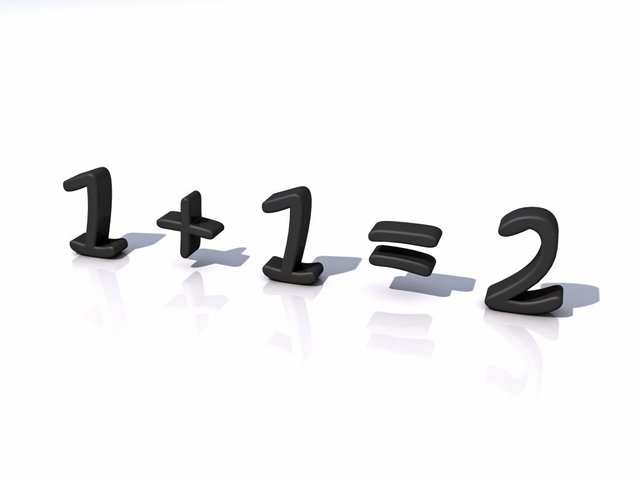In most cases, 1+1 is not equal to 2
During primary school, there will be such a question, there is a project, A will complete it in 10 days, B will complete it in 10 days, how many days will it takes to complete the project if A and B do it together?
The answer is very simple, the answer is this: 1 / ((1/10) + (1/10)) = 5 days
The idea is: Assuming that the amount of work is 1,10 days to complete, then the daily workload is 1/10, two people work together, and then divide by the total amount of workdays, you will get the total number of workdays.
According to the teaching idea in primary school, there is no problem with this question. But after growing up, I suddenly remembered the question, only to find that in real life, it was not like this at all, and, even more regrettable. It was a waste of one of the most important thinking educations when our world view was not formed.
As long as there is the participation of people, in the vast majority of cases, 1 plus 1 will not equal to 2.
Because when people get together, they will produce cooperation, and once cooperate, things are not mechanical addition like 1+1 = 2.
For example, there is a bundle of sticks between 8 and 10 meters in length, you have a tape measure in your hand, and now you are asked to measure the total length of the bundle of sticks. How will you measure if you were alone?

This question is a common issue. You can think whatever ways and figure out ways to improve efficiency, but that's not what I'm trying to explain.
If we do not think thoroughly, measure each stick one by one, you are alone, you will fix the ruler at one end of the stick, and then pull the ruler to the other end to read the length. If there were 50 sticks, then you will have to go back and forth at least 50 times.
But if there are two people, does it means that each person has to run 25 back and forth? The most direct, simplest, least headache way of cooperation is two people standing at both ends of the stick, one person pulling the ruler and measure together.
Do you think it's just twice as efficient as doing it alone? Obviously not.
This is the magic of cooperation, two people can do somethings that one person can’t do.
For example, taking a large board up the stairs, one person will be very difficult, two people will be much easier. This is by no means a matter of one more person, half of the time. Instead, cooperation has created a new model that can no longer be measured by the original reference.
So, this is 1+1 > 2.
During our primary school period where our worldview has not yet taken shape, since there is a thought of such a topic, but only for the simple numbers add up, it is too wasteful. It should be transmitted to us at that time: the magic of teamwork.
Of course, 1+1 can also be less than 2, cooperation might also bring in a problem such as slowing the progress, which is also very common.
One person or two persons, in fact, there is a qualitative difference, so more than one person, not just more than one thought, maybe a miracle that one person can not promote.


Posted from my blog with SteemPress : https://www.knowkpop.com/in-most-cases-11-is-not-equal-to-2/